Consequences of lack of financial knowledge
Nguyen Thanh Mai, a high school student in Hanoi , always understands the hardships her parents go through to take care of her. However, she is often confused about spending money. "Every time I go shopping, I hesitate, but before long, my monthly allowance is gone. I know my parents are not happy, but I really don't know how to save money and gain their trust," Mai shared.
Another story is that of Le Minh Quan, a student in Ho Chi Minh City. As soon as he entered university, Quan received a bonus from his family to support his studies. However, instead of using it properly, Quan decided to invest all of it in stocks with the hope of making a quick profit. Without carefully researching the market, just listening to advice from groups on social networks, Quan soon fell into a spiral of speculation. After only a few months, when the market fluctuated strongly, the accumulated money almost "evaporated".

Prof. Dr. Le Anh Vinh, Director of Vietnam Institute of Educational Sciences
These are just two of many cases that show the consequences of lack of financial knowledge. Professor Dr. Le Anh Vinh - Director of the Vietnam Institute of Educational Sciences, said that personal financial management is not just about earning or saving money, but also a combination of income, spending, accumulation, investment and risk management. It is closely linked to personal financial habits and behaviors as well as knowledge about existing financial products and services.
According to a survey by a research team led by MSc. Pham Thi Thanh, financial education for children needs attention for three main reasons. First, children and adolescents are often exposed to the family, school, social and public policy environments, creating favorable conditions for financial education. Second, this is the early stage in the financial life cycle, when children are just getting acquainted with money and forming spending habits. Third, positive financial knowledge can spread from individuals to families and communities, bringing long-term impacts to society.
Financial education – a preparation for the future
Research shows that when young people are exposed to financial knowledge at an early age, they not only know how to manage their expenses, but also have the ability to plan long-term, invest effectively and prepare for important stages of life. The teenage stage is the beginning of the financial life cycle; followed by the stage of accumulating assets, building a personal economic foundation; and finally the stage of protecting and consuming assets in retirement. If they lack financial skills from the beginning, the next steps will be risky.
Ms. Nguyen Khanh Thi (Ninh Binh), a single mother of three children, expressed her wish that her children would receive a systematic financial education program at school, instead of just receiving fragmented information from social networks. "I hope my children can be independent in life, avoid falling into the traps of fraud or risky investments. Understanding the value of money also helps them know how to share with others and be responsible for the community," she said.

Financial education is something parents should teach their children from a young age.
Current education policies have also recognized the importance of this field. In the 2018 General Education Program, financial education is integrated into many subjects from grades 1 to 12, helping students develop skills in managing spending and making appropriate decisions in daily life.
At the national level, the Prime Minister approved the Comprehensive Financial Strategy to 2025, with a vision to 2030 in Decision No. 149/QD-TTg (dated January 22, 2020). In particular, financial education is an important goal to ensure that people have the ability to access and use financial services safely and effectively.
On August 5, 2025, the Ministry of Education and Training continued to issue Official Dispatch No. 4567/BGDĐT-GDPT on organizing 2-session teaching/day. In addition to the mandatory content, the Ministry encourages schools to arrange supplementary activities, including financial education, suitable to the psychology and needs of each age group. This is considered a positive signal, demonstrating the accompaniment of the education sector in forming essential life skills for students.
A banking and finance expert commented: "Bringing financial education into high schools is a strategic decision. It not only meets immediate needs, but also helps build a generation of citizens who know how to manage their personal finances, are proactive and responsible for the future."
The path to bringing financial education into life
For the policy to truly come to life, financial education content needs to be tailored to each level of education. Primary school students can be introduced to the concept of saving through games, stories or extracurricular activities. In middle school, they will be guided to plan their personal spending and distinguish between needs and wants. In high school, students can access more complex knowledge such as interest rates, credit, basic investments and risk management.

Associate Professor, Dr. Pham Quoc Khanh, Deputy Director of the Department of Quality Management
The role of teachers and schools is especially important. Associate Professor Dr. Pham Quoc Khanh, Deputy Director of the Department of Quality Management (Ministry of Education and Training), said that in order to effectively convey information, teachers need to be trained in professional skills, know how to use digital financial tools and share learning resources. In addition, schools can invite experts from banks, investment funds or reputable financial institutions to participate in seminars and share practical experiences with students.
Financial education also requires the cooperation of family and society. Right at home, parents can become guides, manage pocket money with their children, make spending plans, thereby turning theory into daily habits.
In addition, the participation of financial institutions and businesses also plays an important role. Financial literacy competitions, free online learning tools or community activities will contribute to diversifying education forms. The National Financial Inclusion Strategy also emphasizes the importance of the private sector in expanding the scope and improving the effectiveness of financial education for people.
In the context of an increasingly complex economy, from black credit risks to online fraud, equipping the young generation with financial knowledge will become an effective "shield". A generation of citizens with solid financial knowledge will not only protect themselves, but also contribute to the transparency, stability and sustainable development of the national economy.
Source: https://phunuvietnam.vn/giao-duc-tai-chinh-nen-tang-xay-dung-tuong-lai-ben-vung-cho-the-he-tre-20250824151558317.htm



![[Photo] VinUni students' emotions are sublimated with "Homeland in the Heart: The Concert Film"](/_next/image?url=https%3A%2F%2Fvphoto.vietnam.vn%2Fthumb%2F1200x675%2Fvietnam%2Fresource%2FIMAGE%2F2025%2F11%2F26%2F1764174931822_10-3878-jpg.webp&w=3840&q=75)

![[Photo] Close-up of heavy damage at the school located on the banks of the Ban Thach River](/_next/image?url=https%3A%2F%2Fvphoto.vietnam.vn%2Fthumb%2F1200x675%2Fvietnam%2Fresource%2FIMAGE%2F2025%2F11%2F26%2F1764152130492_ndo_bl_img-8188-8805-jpg.webp&w=3840&q=75)




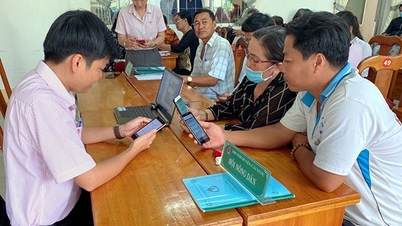













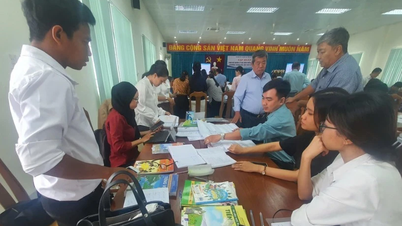
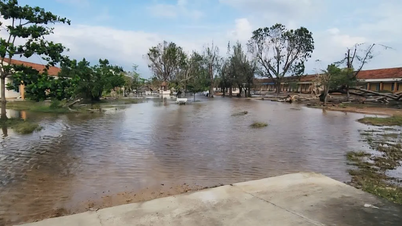







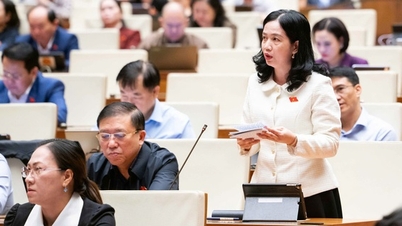



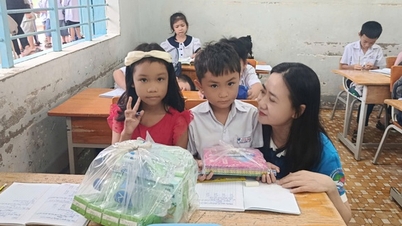










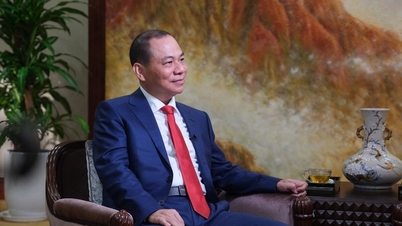
















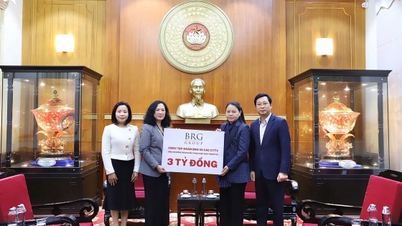










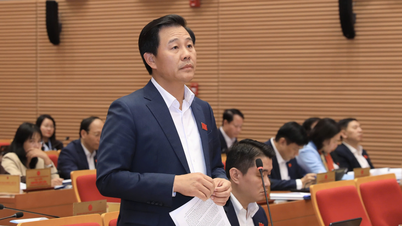
![[Photo] Opening of the 28th Session of the Hanoi People's Council](https://vphoto.vietnam.vn/thumb/402x226/vietnam/resource/IMAGE/2025/11/26/1764155991133_image.jpeg)










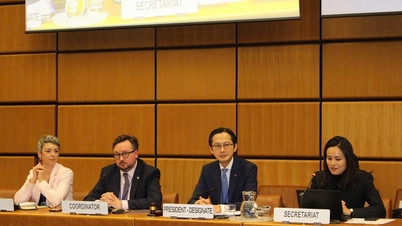





















Comment (0)